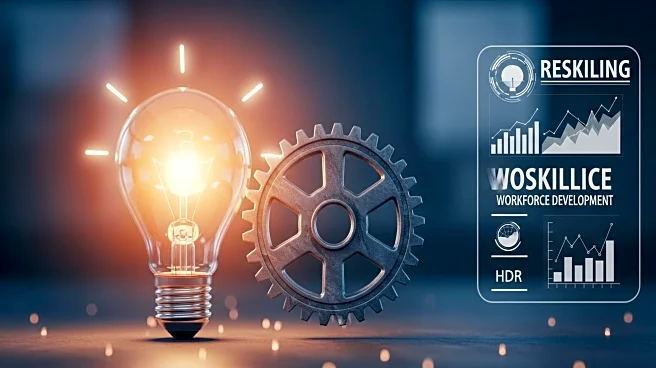What's Happening?
As artificial intelligence reshapes the workforce, companies face a choice between reskilling existing employees or replacing them with new hires who already possess AI skills. Many organizations are opting for the latter, leading to layoffs and a loss of institutional knowledge. Despite the rhetoric around the importance of reskilling, investment in learning and development is declining. This trend is evident in recent layoffs at companies like Accenture and Salesforce, where AI and automation have led to significant job cuts.
Why It's Important?
The decision to replace rather than reskill employees has significant implications for workforce loyalty and organizational culture. Companies that prioritize short-term gains over long-term investment in their workforce risk losing valuable institutional knowledge and employee trust. Reskilling can provide a competitive advantage by retaining experienced employees and fostering a culture of continuous learning. As AI continues to transform industries, the ability to adapt and develop new skills will be crucial for both employees and organizations.
What's Next?
Organizations may need to reevaluate their approach to workforce development, balancing the need for immediate AI skills with the long-term benefits of reskilling. Companies that invest in comprehensive reskilling programs could enhance employee engagement and retention. As the demand for AI skills grows, businesses may also explore partnerships with educational institutions to develop tailored training programs.








